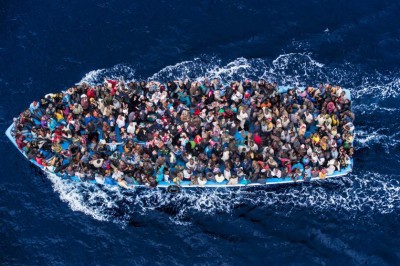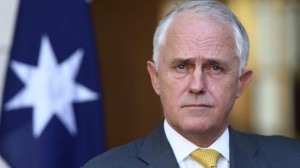Trump, Turnbull and Australia’s Refugee Crisis

“I think it is a horrible deal, a disgusting deal that I would never have made. It is an embarrassment to the United States of America and you can say it just the way I said it.” – Donald J. Trump to Malcolm Turnbull, Jan 28, 2017
It acts as a Rorschach test on policy making in the United States, upon which we can project a range of quizzed perceptions and feather headed notions. And it took a conversation between Donald Trump of the United States and Malcolm Turnbull of Australia to realise how cruelty can become sovereign in the age of the reality television mogul.
The first part of the January chat was the sort of terrain Trump felt most comfortable on. There were the congratulations, and then the personal touches. “And I guess our friend Greg Norman, he is doing very well?”[1]
Then the temperature beings to rise, approaching boiling point, notably on the proposed Obama-Turnbull refugee swap between the US and Australia.
“Really it looks like 2,000 people that Australia does not want and I do not blame you by the way, but the United States has become like a dumping ground.”
The crucified here, as they have been for a good decade in these matters, were refugees. Trump was in a banning mood and throwing food to the anti-immigration lobby. Ban Muslims from travelling; strike countries off the list of suitable providers for arrivals to the US.
“We have allowed so many people into our country that should not be here.”
Trump’s interest, as ever, was why the US should abide by arrangement to begin with. He insisted on calling it “rotten”, “stupid” and “ridiculous”. By going through with such an arrangement,
“I will be seen as a weak and ineffective leader in my first week by these people. This is a killer.”
There were also points of bafflement for the new arrival to the White House. What was, inquired Trump, this mania about boat arrivals? “Why do you discriminate against boats?” Presumably it was the regions producing such refugees.
“No, I know, they come from certain regions. I get it.”
Turnbull ventured his reasons, ones that have become the blood-dry rationale for a ruthless policy that, in its application, is erroneous and dangerous.
“The problem with boats is that you are basically outsourcing your immigration program to people smugglers and also you get thousands of people drowning at sea.”
“Suppose,” inquired Trump on a phone call that has now been minted in infamy, “I vet them closely and I do not take any?”
Turnbull then clarifies the posturing element in the show:
“That is the point I have been trying to make.”
It would not matter if they were not accepted into the United States, as long as it was understood that Australia could never have them.
“The obligation,” explained Turnbull, “is only to go through the process.”
What of the quality of the people in question?
“It is not because [the refugees] are bad people. It is because in order to stop people smugglers we had to deprive them of the product.”
This supreme commodification, this reduction of the historical legacy of shuffling and moving desperate human “cargo” across borders to flee desperate conditions, is one of the more striking points in the conversation. Damn the ethics and the rights, and observe the transaction. Forget the credentials.
Indeed, even if there was a “Nobel Prize-winning genius” who arrived by boat, he would not find home in Australia. This point by Turnbull is near staggering, suggesting more than a minor case of philistinism. (A future advertisement: Nobel Prize-winner fleeing persecution heading to Australia by boat never to settle in the country.)
In what can only be described as a perverse turn, Trump then praises Turnbull and Australia’s refugee policy. To deny even the most gifted because of the means they travel to a country was sound stuff.
“That’s a good idea. We should do that too. You are worse than I am.”
Turnbull’s own picture of the refugee situation remains as formed as any reactionary. Rather than being tormented and tortured in what Trump himself called prisons (Nauru and Manus Island), these “are basically economic refugees from Iran, Pakistan and Afghanistan.”
The impression here is that they would have been let in if appropriately matched to the refugee criteria. But the point is clear enough: the form of arrival determines everything.
“If they had arrived by airplane and with a tourist visa they would be here.”
Almost obscenely, Turnbull suggests that economic migrants are permitted to stay in Australia, provided they take the plane.
The prime minister attempted, at points, to be suitably obsequious, insisting that a generous exchange was being offered. Surely the United States had its own share of the unwanted which Australia might assist in processing?
“We will take more. We will take anyone that you want us to take.”
Just, of course, keep in mind that iron-clad caveat:
“The only people that we do not take are people who come by boat.”
Some in the Australian press corps have claimed that Turnbull came out better in this scuffle. That’s hardly saying much. One leader was transactional, procedural and indifferent to international law; the other was indifferent to the very fact that his administration was bound by anything that had been done by the Obama administration. Ultimately, both leaders were obsessed by the same thing: appearances are everything.
Dr. Binoy Kampmark was a Commonwealth Scholar at Selwyn College, Cambridge. He lectures at RMIT University, Melbourne. Email: [email protected]
Note



